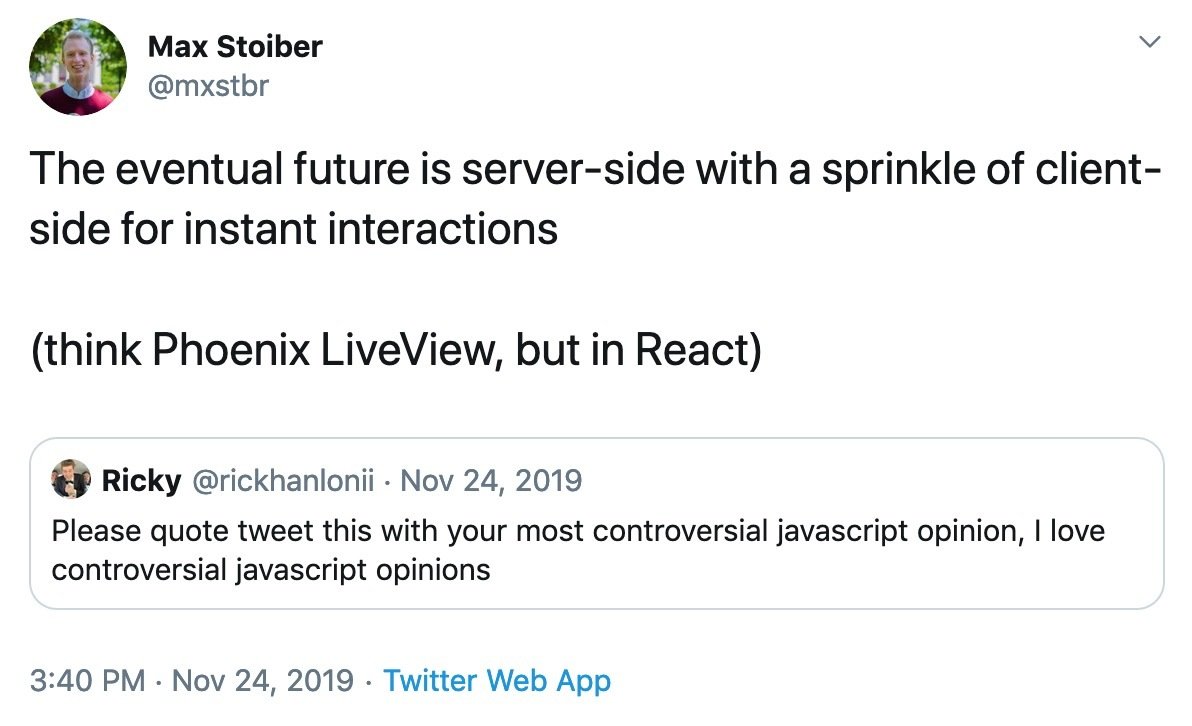Future of Node.js

🐦 @level_out
Think in JS - February 2020
Luke Hedger
It's 2020. Node.js is 10 years old. What do the next 10 years look like for the JavaScript runtime environment? Let's find out!
The Past
1989 - the Web
1995 - JavaScript
2009 - Node.js
2014 - io.js
2015 - OpenJS foundation
2016 - leftpad-gate
2017 - Official V8 target

New features ✨
- ES Modules (web standards)
- Diagnostic Report (cloud)
- V8 optimisations (performance)
Deno
- First-class support for TypeScript
- Sandboxed, explicit permissions e.g. fs, net
- Browser interop - Web APIs and `window`
- No more NPM (see Go Modules)
- WebAssembly Modules!


$ deno test
$ deno fmt
$ deno bundle
$ deno compile
$ deno docServerless
- Future of server-side is serverless
- Compute is moving to the Edge (Lambda@Edge, Cloudflare Workers, StackPath)
- Client 🥰 Server
- Full snack ?

Node.js in 2030?
- Standards based, strongly-typed, highly-distributed
- Seamless, lightweight interop with client
- Fully controlling web apps via serverless server-side rendering
Resources
- Node.js dot dev - https://nodejs.dev/
- ES Modules - https://nodejs.org/api/esm.html
- Diagnostic Report - https://nodejs.org/dist/latest-v12.x/docs/api/report.html#report_usage
- Deno - https://deno.land/
- Full-Stack Development in the Era of Serverless Computing - https://medium.com/@dabit3/full-stack-development-in-the-era-of-serverless-computing-c1e49bba8580
- What's next for serverless architecture? - https://www.itworld.com/article/3526480/whats-next-for-serverless-architecture.html